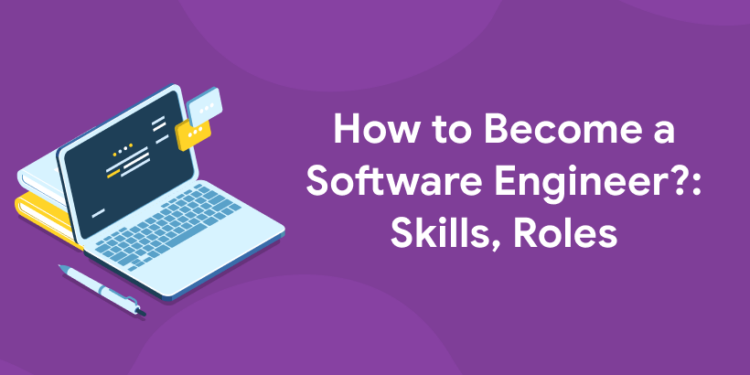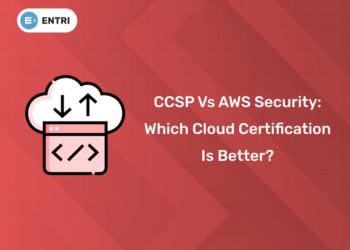Table of Contents
So you want to become a software engineer, but you aren’t sure what software engineer skills or roles will help you land the job? This helpful guide lists the most important skills and roles you need to be competitive in this competitive industry. By learning these software engineer skills now, you’ll have an easier time entering the field and getting your first job when you finish school! The field of software engineering continues to grow rapidly, as does the demand for software engineers and developers. The Bureau of Labor Statistics predicts that the number of software engineering jobs will increase by 22% from 2012 to 2022, compared to an 11% growth in non-software occupations over the same period. This translates into more jobs and higher salaries than most other professions, with only management roles offering similar growth and earning potential. Software engineers can work for everything from small startups to Fortune 500 companies, but every software engineer has specific software engineer skills, roles, and responsibilities that they bring to their job every day. Looking to become a software engineer with software engineer certification? If so, you’ll need to know what the job entails and what skills are required of you in order to be successful in this career path. This article will give you information on the following topics: what a software engineer does, various roles that exist within this field, the top software engineer skills needed for this profession, and more. Learning about these topics will help you get started on your career journey as a software engineer and also serve as an excellent reference when looking at job descriptions or job opportunities in the future.
Programming Languages
Today, most software engineers use at least one programming language that they feel very comfortable with. The most common include Java, C++, Ruby on Rails, Python, Objective-C, PHP and JavaScript (yes…JavaScript). Learning a programming language is like learning a spoken language. There are many dialects in different languages (much like how different people speak English). The best way to become fluent in a language is by actually writing code in it everyday. It sounds obvious now but many don’t do it regularly enough – reading about it is helpful but applying your new knowledge helps you retain it for much longer. Code every day! If you’re not sure where to start check out these popular platforms Codewars, HackerRank or Project Euler. Some other useful skills to learn include HTML, CSS and SQL. They may be basic but knowing them will help tremendously when building a website from scratch or making changes to an existing site. Don’t forget about documentation too – all developers should know how to read documentation written by others and write their own. Good documentation means happier developers who spend less time searching for answers. Another important skill is debugging – being able to find bugs quickly saves everyone’s time. Another key aspect of software engineering skills is testing your work before handing it over to someone else. This can be done manually or using automated tools such as Selenium and WebdriverIO which allow you to test web applications automatically across multiple browsers/devices. These tools make sure that users see what they expect when visiting a website which reduces support requests.
Data structures
1: Which of the following data structures allows elements to be added and removed in a Last-In, First-Out (LIFO) order?
In college, it’s likely that you spent time studying data structures—that is, ways of organizing information in computer systems. These are essentially different ways of storing collections of data (think: an email inbox or contact list). They aren’t so much about how to solve problems as they are about how to manage problems; for example, what happens when you need to save more than one file on your computer? The answer may depend on which data structure (or container) you use. Data structures can help prevent errors as well as optimize software performance by using memory efficiently. If you want to become a software engineer, it’s important that you understand these concepts—and any algorithms involved with them—to help minimize bugs in code and maximize memory efficiency. Your goal should be to learn at least two major data structures—one sequential and one non-sequential. Sequential data structures store items in a linear order, while non-sequential ones don’t have a particular order. Examples include linked lists and stacks versus arrays and queues. Knowing both will give you a broader understanding of how the software works under the hood.
Learn Data Science and Machine Learning! Enroll here!
Build Better, Together. 🛠️ Join the Entri Coding Community!
Beyond syntax, there’s strategy. 🚀 Join our subreddit for: Exclusive Coding Roadmaps 📍,Project Case Studies 📂 ,Interview Prep Tips 💡and more
👉 Join our Reddit communityDatabase Management Systems
As your business scales, you’ll eventually need some type of database management system (DBMS) to help manage your data. Some common DBMSs are MySQL, PostgreSQL, Oracle Database, Microsoft SQL Server, and Microsoft Access. Each database provides different features that make it valuable for certain use cases. For example, if you’re building an e-commerce site where people can buy products directly from your website, then you’ll likely need an open-source DBMS like MySQL or PostgreSQL as it allows for flexibility in how it manages data. It also allows for quick scaling. If you’re creating a mobile app, however, you might want to consider using Microsoft’s SQL Server as it’s optimized for mobile devices. If your company is large enough, then Oracle Database might be best because of its scalability capabilities. In short: Know what kind of data you’ll be storing before choosing which DBMS is right for your project. The wrong choice could lead to costly problems down the road. To learn more about DBMSs, check out Which Is Best? A Guide to Databases. And once you’ve chosen one, don’t forget to put together a solid disaster recovery plan.
Network Protocols
In order to implement any type of software you’ll have to understand how it works. To do that, you need good knowledge of different types of network protocols. Learn TCP/IP (Transmission Control Protocol/Internet Protocol), UDP (User Datagram Protocol), IPsec (Internet Protocol Security) or even OSI (Open Systems Interconnection). The more you know about these protocols, the easier it will be for you to design software solutions for clients. For example, if you need your app for iOS users only, then there is no reason why your client would want an Android app as well. Having knowledge about network protocols will also help with technical writing and troubleshooting other systems in computer networks. So basically, you should never stop learning about networking protocols. If something sounds too complicated to learn, remember: Practice makes perfect! And besides, knowing how things work will help with coding and debugging. Knowledge = power! Then again, you could always take advantage of Google! There are many websites where developers post information about various topics – from developing APIs to using specific programming languages and frameworks. Look around; chances are someone has already written a post on whatever topic you’re interested in. It may not contain all the info you need but when combined with additional research it can give you solid ground on which to build your next project on top of. A few places I recommend checking out are TechTalkies – they usually host interesting topics by their own community members, but sometimes outsiders join their discussions as well.
Learn Python Programming ! Enroll here!
Operating Systems
Most software engineers have an intimate understanding of how operating systems work, both in terms of fundamental principles and internal details. Even if you’re not developing operating systems or writing device drivers, being able to ask pointed questions about system architecture will set you apart. Operating systems are complex, but there’s plenty of help online if you’re interested in learning more. For example, check out Andrew Tanenbaum’s classic Minix primer or Walter Bright’s dmd guide for writing device drivers in D. And don’t forget that you can always learn from open source projects—the Linux kernel is one of the most sophisticated pieces of software ever written. In fact, Linus Torvalds has said he’d be happy to hire anyone who has read his code! If your interest is piqued, then pick up a copy of Linux Device Drivers by O’Reilly Media. It won’t take long before you’re asking detailed questions about low-level design decisions. After all, it takes years to understand even part of a project as large as Linux. The point here isn’t just to study low-level concepts; reading device drivers also gives you insight into C/C++ interfaces, since those are what device driver authors tend to use. This kind of insight helps with designing APIs for any programming language. It also makes you much better at debugging programs and knowing when things go wrong—all good skills for any programmer!
Are you aspiring for a booming career in IT? If YES, then dive in |
||
Full Stack Developer Course |
Python Programming Course |
Data Science and Machine Learning Course |
Build Better, Together. 🛠️ Join the Entri Coding Community!
Beyond syntax, there’s strategy. 🚀 Join our subreddit for: Exclusive Coding Roadmaps 📍,Project Case Studies 📂 ,Interview Prep Tips 💡and more
👉 Join our Reddit communityMobile Development
If you want to specialize in mobile development, there are a number of skills you should have in your toolbox. A good place to start is by learning how your operating system works, as well as its file structure. Take some time to learn about Objective-C or Swift if you’re interested in iOS development; Android development uses Java, so that’s worth brushing up on. Hone your database skills with SQL because most large applications connect to some kind of database backend. For front-end work, make sure you can handle modern web technologies like HTML5 and CSS3 (as well as older HTML standards), because they provide better cross-platform compatibility than Flash or other proprietary languages. Finally, familiarize yourself with JavaScript frameworks such as jQuery and AngularJS. They let you create rich web interfaces without dealing directly with browser quirks—and they help you keep track of code across different devices. It might seem overwhelming at first, but once you get started it becomes second nature.
Artificial intelligence/ Machine learning
While you won’t be creating robots just yet, AI development is one of hottest fields in software right now. And if you’re looking to make your career through software engineering, it can’t hurt your chances. In fact, many people who code frequently turn to artificial intelligence (AI) and machine learning as a way to up their game. These technologies are so widespread that even basic applications can significantly boost efficiency at work or school—and they won’t require much time investment on your part, either. It makes sense: With AI-powered assistants like Siri, Alexa, Cortana and Google Now growing more sophisticated by the day, it stands to reason that humans might want some help. So check out these five tools for an introduction to AI and ML. They’ll give you a good idea of what’s possible today, with minimal effort on your part. Don’t worry about becoming an expert; most developers don’t need to know how these tools work under the hood anyway. The key is knowing how they fit into real-world projects—which will come naturally with practice. But here’s a quick rundown of what each tool does: 1. Microsoft Azure Machine Learning Studio 2. IBM Watson 3. Wit 4. Automated Insights 5.
Be a Full Stack Developer! Enroll here!
Cloud Computing Services
Offers software as a service (SaaS), platform as a service (PaaS), infrastructure as a service (IaaS) by public cloud, private cloud or hybrid-cloud delivery models. When you run your software on SaaS, PaaS or IaaS systems, you’re considered to be part of the cloud. Because it offers greater convenience and scalability than in-house development alone, many new developers choose to code their applications in someone else’s cloud rather than managing their own hardware. This way of developing an application is often called cloud native development. No matter what framework you use for your app, being able to customize it without having access to servers allows for faster turnaround time. It also makes it easier to scale up your app if you suddenly find yourself with a lot more users than expected. In addition, cloud computing enables continuous integration and continuous deployment (CI/CD). These processes allow teams to develop apps quickly and easily update them when needed. The goal is to make sure that any bugs are fixed immediately so that they don’t impact customers negatively. As a result, there’s less downtime because updates can happen automatically instead of requiring manual intervention from IT staff members. Cloud computing can also help improve security because your data will live somewhere other than on your network—which means that hackers have one less place to attack if they want access to sensitive information about your company or its customers.
System Admin Roles/ DevOps Engineer Roles
These roles often have enough overlap that some people will move between them without changing jobs. If you love tinkering with code, being in charge of maintaining an entire technology stack, managing thousands of servers or other aspects of an IT environment, then these might be good roles for you. DevOps is in high demand right now and growing quickly, with job postings hitting record highs as companies try to find qualified workers who can fill these demanding positions. It’s also a great niche for freelancers who want more flexibility in their work life. This is probably one of the best careers for you if you prefer to spend most days off from your desk working on problems in your office (or at home). The pay is solid and there are plenty of opportunities available. Just make sure you know what it takes to succeed in those roles before you commit. If you don’t like constant firefighting, need downtime, or aren’t willing to put up with all kinds of corporate nonsense and bureaucracy just to get a paycheck, then maybe it’s not for you. There are plenty of alternatives where everything isn’t out-of-your-control critical 24/7/365 and where your contributions directly affect whether things succeed or fail. Like almost every career choice, it comes down to your personal preferences and priorities when deciding whether it’s worth doing so professionally versus just messing around on weekends/nights as a hobbyist. If you are interested to learn new coding skills, the Entri app will help you to acquire them very easily with software engineer certification. Entri app is following a structural study plan so that the students can learn very easily. If you don’t have a coding background, it won’t be any problem. You can download the Entri app from the google play store and enroll in your favorite course.
Learn to code from industry experts! Enroll here!
| Our Other Courses | ||
| MEP Course | Quantity Surveying Course | Montessori Teachers Training Course |
| Performance Marketing Course | Practical Accounting Course | Yoga Teachers Training Course |












